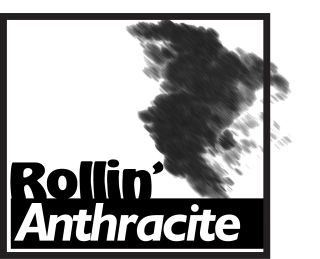Politics
“Rolling Coal” and Other Taunts: The Psycho-Politics of a Bad Joke
When fun feeds outrage and rivalry turns to revenge.
Posted June 8, 2024 Reviewed by Hara Estroff Marano
Key points
- Bullying is not play.
- In practice, we know the difference between taunting and teasing.
- Class antagonisms sometimes underlie taunting.
Riding a bike in the undulating terrain between lakes in northern Michigan is close to ideal, as it features smooth pavement, gentle inclines, effulgent blue vistas, and nearly deserted roads that invite a meditative state. Incongruously, that is where I first learned about coal-rolling, by experiencing it myself.
When a truck hunkering to the right and bearing down appeared in my helmet’s rear-view mirror, chrome smokestacks enhancing the visual effect, I edged toward the gravel but was still nearly sideswiped. Then, punctuated by a blast tuned like a train-whistle, the deep brown carcinogenic cloud rolled over.

A Long Way to Go for a Bad Joke
The event left me more bewildered than outraged. What had just happened? Looking into it, I found that coal rollers spend up to $5,000 illegally tampering with their emissions systems by installing “defeat devices” that bypass pollution controls. This retrofit allows them to generate, at the flip of a switch, volumes of sooty exhaust that humiliate pedestrians (usually women) and outrage cyclists. This is a long way to go for a bad, labored joke.
In fact, my experience was not isolated. The taunt can leave motorists and cyclists in a temporary blackout. It is common enough and dangerous enough that several states have declared rolling coal a crime.
These laws are hard to enforce. Police must witness a violation first. But federal law sanctions the engine modifications that emit noxious unburned fuel at a rate up to 1,400 times allowable limits. Since 2016, the Discovery Channel has featured the reality series, “Diesel Brothers,” which follows a group of skillful Utah truck customizers. Four years later, a federal judge fined three of the principals on the show a total of $850,000 for hundreds of violations of the Clean Air Act.
Play This Isn’t
This is not the kind of harmless, playful, good-natured prank that officemates or roommates or fellow campers might cook up—the kind where the “victim” giggles harder than the prankster.—like the fake-spider-on-the-fried-egg-at-breakfast trick, let’s say, or like the putting-the-toothpaste-in-the-Oreo trick. Or hiding girls’ underwear in a rugged Eagle scout’s duffel. (I know, I know…)
Rolling coal is more like a premeditated attack and less like a prank. There is no sliding scale that includes both. Pranks fail as play when they turn mean and bullying.
In the days after my experience, two bumper stickers caught my eye. One pictured a red circle with a bike inside with a red line running through. Alongside, this text appeared: “Get Off the Road!” Another simply said, “I Don’t Share the Road.”
Why the hostility?
The Motivations
I have since learned that this sour entertainment is a political protest of environmental regulation. Edging over into cultural politics, coal rolling also pointedly demeans those who might, possibly or presumably, support initiatives that deal with the effects of a warming planet.
And who would likely have the temerity to advocate curtailing American liberty, the freedom of the open road, this way? Surely not a working man. But an over-educated obstruction with time enough on his hands to ride a bike in the middle of the day in the middle of Elsewhere, Michigan? Well, if the symbol fits, partner, choke on it.
Vice-Signaling vs Virtue-Signaling
The sociologist and play scholar Thomas Henricks suggests that this anti-environmentalist anger, expressed with trucks that “give the illusion of menace,” is a novel variety of “status management,” a familiar process of “making clear who has the upper hand.”
Four oversized wheels clearly beat two skinny ones. But tellingly, coal rollers also deploy their smoke against passenger-car drivers who they regard as morally hectoring. Accordingly, hybrids and electric cars trigger coal rollers, too. For a mere $3.50, coal-rollers can buy online a defiant “Prius Repellant” bumper sticker with an arrow pointing downward toward the exhaust.
Here the reader may begin to believe that I am a glutton for punishment, because we recently acquired a zippy electric car that also, alas, triggered profane taunts from aggressive drivers.
Given the gravity of the climate crisis, I do admit to feeling some measure of virtue driving this little runabout around town. But by driving it I never meant to signal virtue or invite its opposite. In this regard the Financial Times critic Robert Schrimsley proposes an antonym, vice-signaling. Vice-signalers take offense. Smuggling meat into a vegan meal, he notes, or disparaging a climate activist as “woke” or a “snowflake” are good examples. Threatening bumper stickers available for sale online, he writes, brand an “outrage economy.”
The American Anti-Hero Channels Resentment
American culture, especially in its films and television series, reserves an honored place for the independent character, the dauntless explorer, the righteous cowboy, the against-all-odds inventor, the heroic frontier widow, the crusading reformer, the idealistic political Everyman—the “Mr. Smith” who goes to Washington. To a woman and man, these archetypes are brave, courageous, and bold. Long live their fame, and long live their glory, and long may their stories be told!
But American culture also conjures a string of edgy, morally flawed outlaws. The antihero may sometimes do the right thing, even if for the wrong reason. Think of the vengeful Lizbeth Salander here, or Geralt of Rivia and his handy supernatural talents, or, closer to reality, Dirty Harry and Michael Corleone. But sometimes not. American movies and pop music also sanitize and exalt the memory of murderous bootleggers and gunslingers, pirates and bank robbers, unredeemable meth-cookers and gangstas.
Their loathsomeness does nothing to diminish their allure; in fact, it’s rather the opposite.
Of Mischief vs Malice
In practice, again, we know the difference between teasing and taunting or mischief and malice. The rolling-coal insult carries a strong aroma of class animosity, too, a usual feature of current performative cultural politics. If you happen to spot another bullying bumper sticker that reads “My Kid Can Beat Up Your Honor Student” or a version that’s worse, “My Kid Got Your Honor Student Pregnant,” you will behold how the culture that once hailed manly decency and courage now channels fragile resentment, fear, despair, and envy.
References
Robert Schrimsley, “Once You’re Accused of Virtue-Signaling, You Can’t do Anything Right,” The Financial Times (May 10, 2019) https://archive.ph/20190511145246/https://www.ft.com/content/cf4d3d5c-7129-11e9-bf5c-6eeb837566c5#selection-1747.0-1761.16; Igor Prusa, Matthew Brummer, “Myth, Fiction, and Politics in the Age of Antiheroes: A Case Study of Donald Trump,” Heroism Science, volume 7, issue 1 (2022).
Bob Mionske, “Legally Speaking: Rolling Coal is Wrong and Illegal,” Bicycle Law (December 7, 2015) https://www.bicyclelaw.com/category/articles/ ; Jonathan Edwards, “A Teenager Allegedly Hit 6 Bicyclists with his Truck, Sending 3 to the Hospital. A Biker Says the Driver was Harassing Them,” The Washington Post, (September 30, 2021); Richard Slotkin, Gunfighter Nation: Myth of the Frontier in Twentieth-Century America (1998).
Play as a Basic Pathway to the Self: An Interview with Thomas S. Henricks,” interview conducted by Scott G. Eberle, American Journal of Play, volume 7, number 3 (Spring, 2015), https://www.museumofplay.org/app/uploads/2022/01/7-3-interview-play-as-a-basic-pathway-to-the-self.pdf




